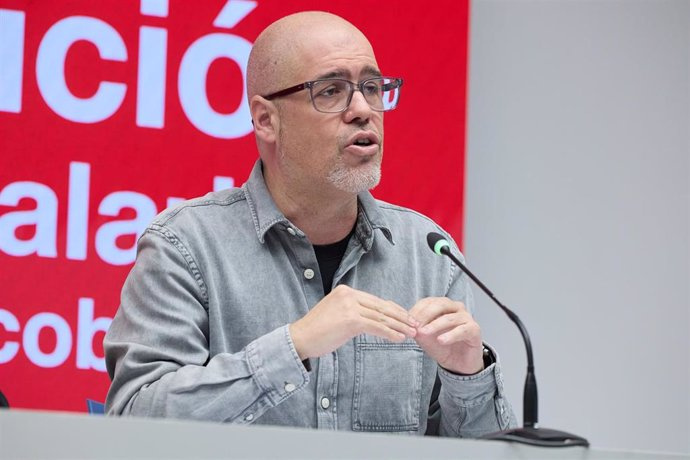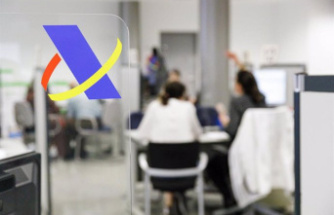Warns of the dangers of using AI to select personnel due to greater "discriminatory biases"
MADRID, 5 Abr. (EUROPA PRESS) -
The general secretary of CCOO, Unai Sordo, has asked this Friday that the "unequal" working conditions suffered by young people when accessing employment be "objectifiable", be limited in time and double salary scales by age not be generalized, That is to say, that just because you are young you do not receive a lower salary.
"I'm not saying that there can't be specific entry situations when you go to a job, as long as they respond to an objective reality, based on time and transformable into a situation of normality," Sordo said in a press conference. to present a union document on youth problems.
Thus, the union leader has stated that there can be a period of adaptation to the job that can justify "different conditions for a time", but this must be done "in a very objective way and very limited in time", so that double salary scales do not become widespread which, due to the fact of being young, implies earning less.
In this sense, Sordo has argued that there are jobs that may require an adaptation period, but others that do not, so it would not be justified to receive a lower salary just because of age.
"If I enter an assembly line, after two hours, with complete certainty, I am performing and generating the same productivity as a worker who has been on that assembly line for 25 years. Therefore, there is no objective justification for me to earn a lower salary," Sordo pointed out.
However, the union leader has warned that the general problem is rather that collective agreements are not complied with because companies make contracts with a lower category to perform higher category positions (for example, someone is hired as a kitchen assistant who will actually act as a cook).
"And this, either the people in the company organize to fight it, or the union is reported, or the situations become chronic. And many times this is what happens, because the question is, if you don't like this, you know what there is. Door. This is the inertia that must be broken," he stressed.
Sordo has warned that, despite the increase in the interprofessional minimum wage (SMI) by 54% in recent years and the fact that the labor reform has significantly reduced temporary employment among young people, they continue to perceive that their situation is "life insecurity", fundamentally due to two issues: employment and difficulties in accessing housing.
Sordo has explained that where company committees exist, unions try to participate in the hiring processes and determination of working conditions so that discrimination situations do not occur.
At this point, he has warned of the dangers of using Artificial Intelligence (AI) to select personnel due to greater "discriminatory biases." "In a book that Adrián Todoli (professor of Labor Law and economist) published last year about digitalization and artificial intelligence, he gives a piece of information that is devastating: 78% of the resumes that companies receive today are no longer a human eye sees them," Sordo warned.
In this way, he added, the conditions of hiring or promotion within the company "will increasingly be marked by artificial intelligence formulas or algorithms that will generate criteria that may have discriminatory biases."
"Until now they asked you about your intention to have a child. If you said yes, then maybe you had already got the warning that they wouldn't hire you in that company if you were a woman. We can go to hiring systems where there are an algorithm that is not going to ask you, it is that it has already done predictive work to, based on the data it has accumulated, know the propensity that you as a woman have or do not have to have a child. to ask, is that there will be a discriminatory bias when determining whether I hire A, B, C or D. And these discriminations that we have known all our lives can be much deeper," he denounced.
What's more, Sordo has indicated that algorithms can measure, for example, the tendency of a person to arrive late to work depending on the neighborhood in which they live and on the days when it rains due to traffic jams. "And then, since it has accumulated data that the people who work in the company that lives in that part tend to arrive a little later or arrive a little more in a hurry when it rains and there are traffic jams, it ends up generating a discriminatory bias when deciding if he hires or promotes the one who lives there or the one who lives closest," he noted.
Sordo has argued that this is no longer about the works council monitoring the hiring, without looking at whether it is a woman, a white, black, tall or short person. "This is about how to abolish the issue of human resources management through new formulas of artificial intelligence. And this cannot only be done by the legal representation of workers in the company," she said.
Thus, it has urged the State Agency on AI that the Government has created to check all the algorithms and elements of artificial intelligence in companies so that they are compatible with human rights and with compliance with the laws and non-discrimination.













